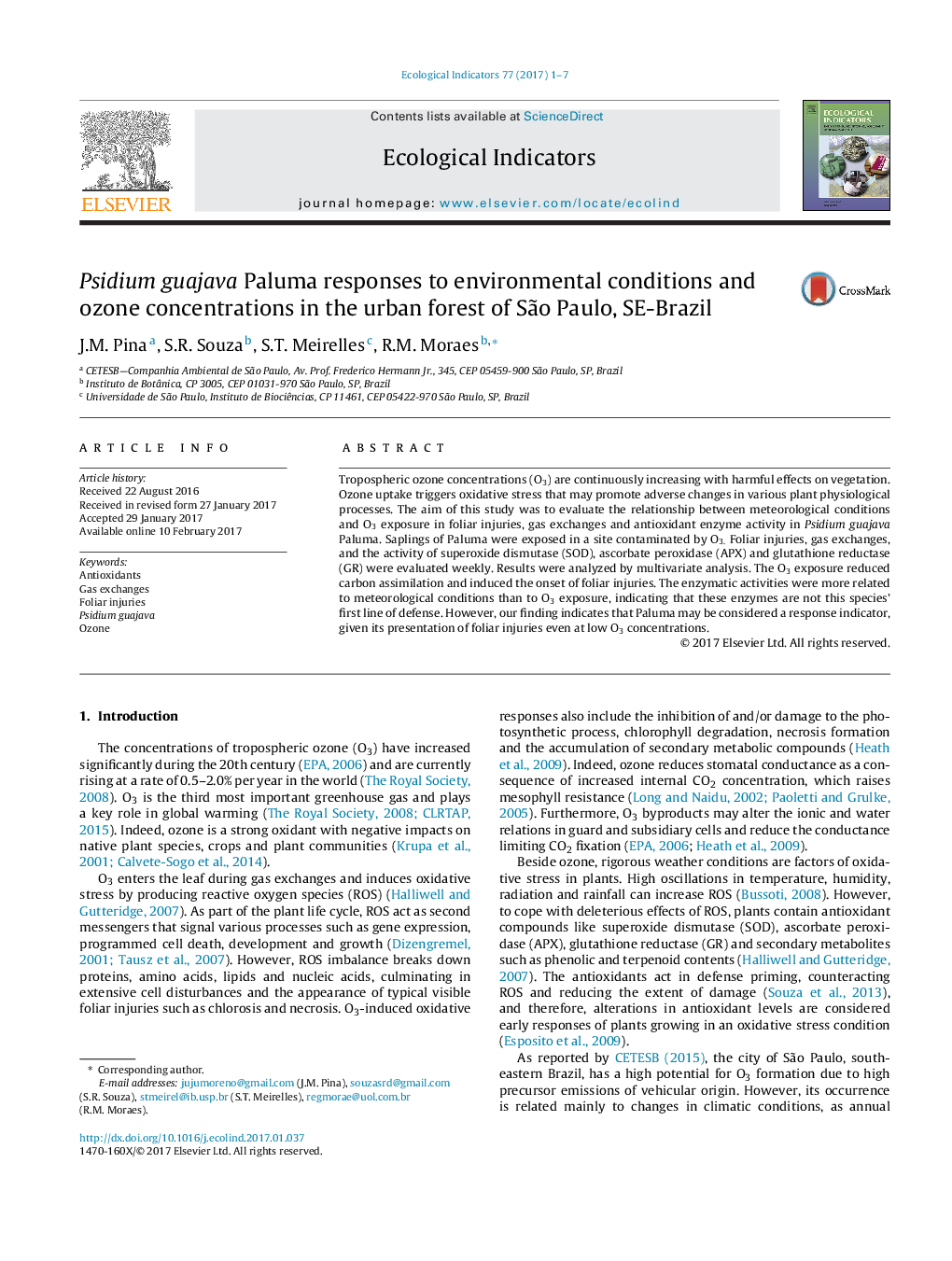| Article ID | Journal | Published Year | Pages | File Type |
|---|---|---|---|---|
| 5741703 | Ecological Indicators | 2017 | 7 Pages |
Tropospheric ozone concentrations (O3) are continuously increasing with harmful effects on vegetation. Ozone uptake triggers oxidative stress that may promote adverse changes in various plant physiological processes. The aim of this study was to evaluate the relationship between meteorological conditions and O3 exposure in foliar injuries, gas exchanges and antioxidant enzyme activity in Psidium guajava Paluma. Saplings of Paluma were exposed in a site contaminated by O3. Foliar injuries, gas exchanges, and the activity of superoxide dismutase (SOD), ascorbate peroxidase (APX) and glutathione reductase (GR) were evaluated weekly. Results were analyzed by multivariate analysis. The O3 exposure reduced carbon assimilation and induced the onset of foliar injuries. The enzymatic activities were more related to meteorological conditions than to O3 exposure, indicating that these enzymes are not this species' first line of defense. However, our finding indicates that Paluma may be considered a response indicator, given its presentation of foliar injuries even at low O3 concentrations.
